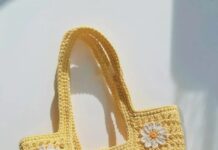Karambani
SIDE EFFECTS OF MEDICAL SCHOOL
She knew him as someone who never stood the sight of an animal being slaughtered during eid.  As a kid, he once seriously protested the slaughter of a chicken that had fallen ill, insisting it should be taken to a veterinary doctor instead. So when they went ahead, he cried profusely and in protest, amazingly refused to eat the delicacy prepared.
As a kid, he once seriously protested the slaughter of a chicken that had fallen ill, insisting it should be taken to a veterinary doctor instead. So when they went ahead, he cried profusely and in protest, amazingly refused to eat the delicacy prepared.
Even at 18 years, he closed his eyes as they drove pass a cemetery. When an old man passed away in the house, she recalls how he failed to attend the burial and subsequently had 2 sleepless nights consecutively.  Marzuq, however, was loved at home, in school and on the street for his humility and outright friendliness.
Marzuq, however, was loved at home, in school and on the street for his humility and outright friendliness. 
Then came medicine, with it’s fearful moments that are akin to a horror movie. Well, I will save you the story of his adaptation. But he has just started 300L, then came the almighty ASUU strike and he had to return home.
She went into his room searching for something and was shivered to the spine at the sight of what she found therein. Lying close to his pillow was a skull and other long bones. ☠ She startled and dashed for the door; her heart racing, her eyes popped out and profusely sweating as though there was a tap that was suddenly opened from beneath her skin.  But as she reached the door, she had an afterthought and preempted that those couldn’t have been human. Maybe they are like those rubber skeletons in Biology labs, she said. But as she walked back to her room she concluded that she’ll confirm from him as soon as he returns.
But as she reached the door, she had an afterthought and preempted that those couldn’t have been human. Maybe they are like those rubber skeletons in Biology labs, she said. But as she walked back to her room she concluded that she’ll confirm from him as soon as he returns.
She was shocked at the discovery of the sort of ‘monster’ he has gradually become. Not only did he confirm what she saw was human, he even ‘proudly’ told her how he places the skull by his head as he comfortably sleeps.  He narrated how he’s become the chief dissector of human remains in his class, that like a super specialist, he only comes in where difficult tasks are to be done like using the ‘handsaw’ to cut open the skull and remove the brain, open up the chest and dissect the heart or the abdomen and perineum.
He narrated how he’s become the chief dissector of human remains in his class, that like a super specialist, he only comes in where difficult tasks are to be done like using the ‘handsaw’ to cut open the skull and remove the brain, open up the chest and dissect the heart or the abdomen and perineum. 
Agonizingly, there was a sense of fulfillment, excitement and pride in his words as he narrates the story. As he uses words like ‘fed’e cikin’, ‘balla qashi’, ‘qwaqulo ido’, ‘bare kan’, she became more disturbed at the thought that those were human being he was describing for crying out loud. ??♀
As he grew in the system, she noticed he gradually became emotionally blunt, less caring and more detached. Deaths and illnesses to him are just some of those things, as he feels being in the hospital now, he has seen it all. He lost friends and found true love only in those big, heavy and expensive books.
Four years later, they joyfully celebrated as he read the oath proudly with the Quran on his right. Sadly, soon after, reports started reaching her about how her son- a once charming friend of all, has become an unaffectionate, insensitive and less empathic doctor.
DISCUSSION
Like most medical students, I used to think that certain attributes we develop in school are things of pride, such that they have become the yardstick that clearly distinguish us. But like all good things, they come with a huge price. So I’ve come to realise that indeed they are a great blessing when properly utilized, but a very corruptible power when inappropriately handled.
This can be seen in this quote, for instance, from
Femi Oyebode, a Professor and Consultant Psychiatrist,
University of Birmingham:
“Our profession is incredibly technological in the west and I don’t look at you, I just look at the computer. So the technology is impairing with the interaction between two human beings.
“But at a more serious level is the way we are educated in medicine. Imagine someone like me at the age of 18 years at University of Ibadan. I went into anatomy and on my very first afternoon we were allocated a dead body, four on both sides and you learn how to cut and name it.
“Now, they thought they were teaching us the body structures but actually what they were teaching us was how to be detached and how to objectify the human body. That process of objectification translates into later life so that we start to treat patients as if they were just mechanical objects- that’s problematic!
“Part of my task is to try to bring the subjective back into clinical practice, so you are reminded all the time that when you see a real person, you have to remember that it is a real person who has a life, goals, plans, children, lovers and a whole extended network of human beings, where their distress is going to have an impact on those people too.”
MY DEDUCTIONS
Medicine is a profession that requires it’s practitioners to adapt to a lot of daily biopsychosocial stressors. So to ensure that doctors are up to the task, like immunological tolerance. The training is tailored in a way to expose young and naive chaps to such experiences continuously till they become insensitive to them.
Now that’s the scary part!
In the process of this transformation, some may add these acquired traits to their baseline personality, in the process becoming excellent doctors. Conversely, others unluckily lose themselves in the process, that you find people wondering whether it is the same person. Such persons sadly may turn out to be bad doctors despite their high level and veracity of stuffs, as a result of poor human interactions. They may also fail in their other everyday social roles in the family and society at large.
It is imperative then that we understand this so as to improve, or worst, preserve ourselves through the training for a purposeful carrier and life ahead.
IN CONCLUSION
BEWARE! MEDICINE IS NOT WITHOUT SIDE EFFECTS.
LET MEDICINE CHANGE YOU POSITIVELY.
Ismail Muhammad Bello is a 500 Level MBBS student and Class Rep at ABU, Zaria.
Follow the Neptune Prime channel on WhatsApp:
Do you have breaking news, interview request, opinion, suggestion, or want your event covered? Email us at neptuneprime2233@gmail.com




